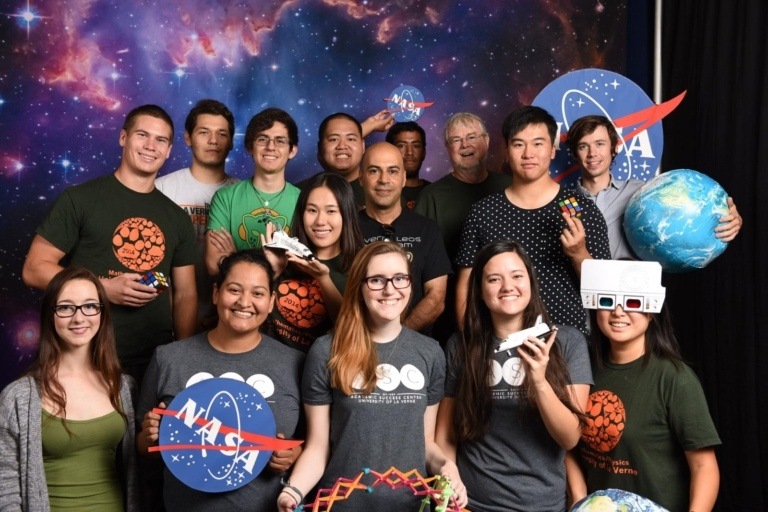The Mathematics Department at the University of La Verne is dedicated to the preparation of students for graduate study and careers in teaching, scientific computing, and technology-related industries. While offering basic grounding in the classical areas of mathematics, the curriculum emphasizes applied mathematics and its constantly evolving role in analyzing and solving problems in fields ranging from economics to aerodynamics and the environment.
Mathematics is a universal language, a part of the common base of knowledge through which people of different ethnicities, nationalities, and cultures can communicate. It is a central part of the liberal arts studied for the discipline it brings to one’s way of thinking, the comprehension it offers of an increasingly technological world, and the understanding it grants of science, nature, and technology.
Courses taught by the Mathematics Department emphasize basic skills as well as applications of mathematics in various career areas. An underlying philosophy of our teaching is that students enjoy and derive benefit from that which is fun, as well as from that which they clearly see a need to investigate. In all courses we foster an appreciation of the beauty of mathematics and demonstrate the nature of humanity to search for patterns and order in the world.
By upholding certain standards while remaining sympathetic to the difficulty many students have in mathematics, we stress ethics and disciplined study, as well as humanity.
In small classes and directed studies, we encourage students to take on increased responsibility for their own education, to seek knowledge actively rather than to receive it passively.
Those who major in mathematics may not spend their lives as professional mathematicians, so we teach skills and attitudes which are transferable and will serve students in any situation requiring problem-solving, synthesis, and persistence. We encourage students to wonder and ask not only “how?”, but also “why?” At the same time, we provide a solid grounding in core mathematical skills and knowledge to enable those who are singularly motivated to pursue graduate studies.
Many mathematics majors are motivated to serve society through teaching, while others have taken technical positions in industry. Many also seek a second area of concentration; recent graduates have done significant course work in biology, computer science, economics, physics, and even psychology.
In consideration of the diverse group of students at our university and in the mathematics program, we actively seek to fit our instructional and assessment methods to the needs of the individual student. The department attempts to recruit and maintain a diverse faculty. The mathematics major, as well as the teaching credential program, is reviewed each year to keep the programs current and consistent with national and state guidelines.
Learning Outcomes
Graduates of the Mathematics Program will:
- develop an appreciation of the inherent beauty of mathematics;
- develop mathematical proficiency in their major course work;
- be capable of utilizing mathematical knowledge in future endeavors;
- develop attitudes and behaviors to help them succeed in their professional communities; and
- acquire expertise in appropriate technology.

